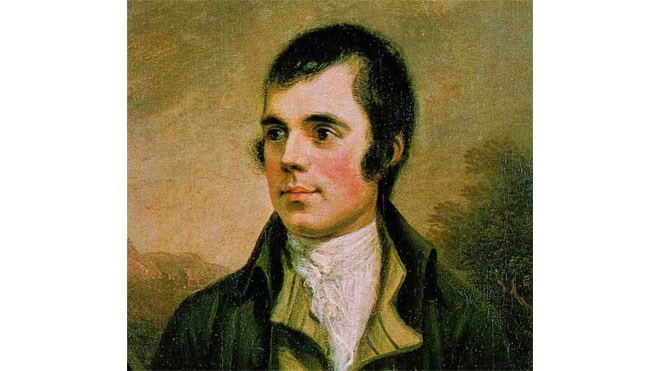It punctuates the ending of the Christmas classic It's a Wonderful Life, but is perhaps most closely associated with New Year's Eve.
Robert Burns' 1788 poem “Auld Lang Syne” has been performed by countless artists (often in English translations better understood by modern audiences) and has come to represent a heartfelt goodbye to the past year at the stroke of midnight.
But the song is also used to celebrate other momentous endings and new beginnings, such as graduations, memorials and funerals.
When Burns presented the song to the Scots Musical Museum he reportedly left the remark, “The following song, an old song, of the olden times, and which has never been in print, nor even in manuscript until I took it down from an old man.”
Burns historians have attributed most of the poem to him, although it's likely he adapted parts from old Scottish folk songs.
While it may be less common than the 10-second countdown before midnight, for many families it's tradition to gather and sing “Auld Lang Syne” to bring in the New Year.
If you would like to follow along with those old tradition, you can use the lyrics below, which represent a minimal English translation of Burns' original manuscript.
Should old acquaintance be forgot,
and never brought to mind?
Should old acquaintance be forgot,
and old lang syne?
CHORUS:
For auld lang syne, my dear,
for auld lang syne,
we'll take a cup of kindness yet,
for auld lang syne.
And surely you'll buy your pint cup!
and surely I'll buy mine!
And we'll take a cup o' kindness yet,
for auld lang syne.
CHORUS
We two have run about the slopes,
and picked the daisies fine;
But we've wandered many a weary foot,
since auld lang syne.
CHORUS
We two have paddled in the stream,
from morning sun till dine†;
But seas between us broad have roared
since auld lang syne.
CHORUS
And there’s a hand my trusty friend!
And give me a hand o' thine!
And we'll take a right good-will draught,
for auld lang syne.
CHORUS
